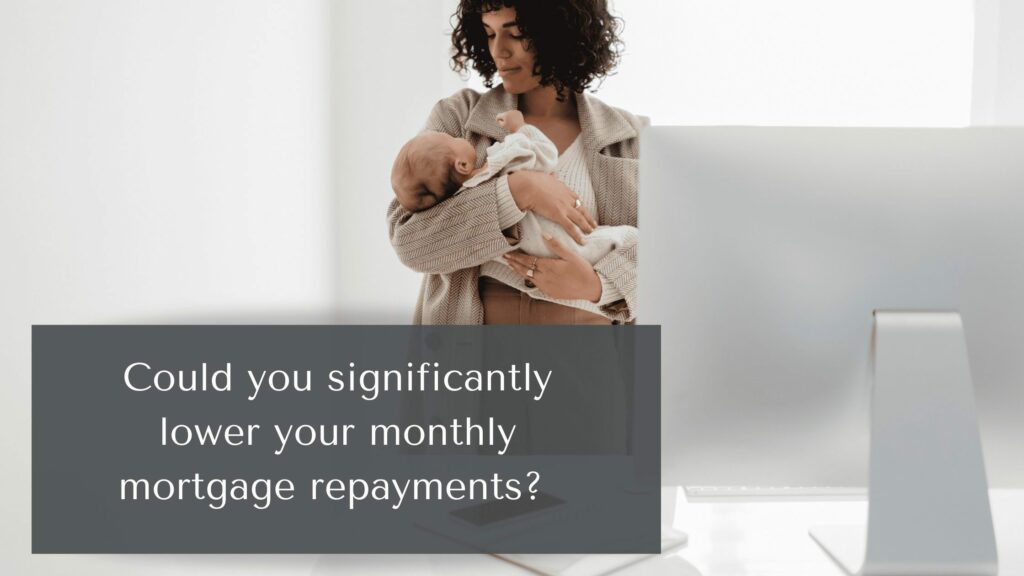While most home owners have a mortgage, many don’t realise that they could save money by remortgaging. While there are good reasons to find a new mortgage deal, it really depends on your situation and circumstances. Not sure whether to remortgage, you will want to read our advice.
Remortgaging involves taking out a new mortgage and repaying your existing one. With a remortgage, you do not usually move property. You simply transfer the debt on your existing mortgage to a new lender, with your home continuing to act as security. This could be with either your existing lender or a new mortgage provider. There are a number of benefits from remortgaging your home.
WHY DO PEOPLE REMORTGAGE?
Remortgaging can allow you to switch to a mortgage product that is more attractive. This could be because it is at a lower rate of interest or better suited to your needs. The main reason to remortgage is because doing so can result in significantly lower monthly repayments. Some people save hundreds of pounds.
Or, you might not necessarily be looking for lower repayments, but you’d like them to be more predictable. If you have a
variable rate mortgage and you’re worried about rate increases, remortgaging with a fixed rate mortgage could give you more peace of mind.
As another alternative, you might be looking for more flexibility. Not all mortgages allow you to overpay, or to take a payment holiday when you need to. Remortgaging can allow you to find a mortgage that better suits your needs.
[click_to_tweet tweet=”“Remortgaging involves taking out a new mortgage and repaying your existing one. With a remortgage, you do not usually move property.”” quote=”“Remortgaging involves taking out a new mortgage and repaying your existing one. With a remortgage, you do not usually move property.””]
WHEN SHOULD YOU REMORTGAGE?
You can look into remortgaging at any time, but at certain times it becomes even more important.
1. At the end of your current deal
When you bought your home, it’s likely that you chose a mortgage with an introductory incentive. For example, you might have selected a fixed rate mortgage for three years, or a tracker mortgage for two years. Whatever the case, at the end of that incentive period your mortgage will switch to your lender’s standard variable rate (SVR). The SVR can go up and down as your lender decides, which can result in a sudden increase in your monthly repayments.
Luckily, it’s usually easier to get out of your mortgage early once you’ve reached the end of the incentive period. So, you can start to shop around for other deals.
2. If your home has increased in value
If your house has substantially increased in value – whether that’s because you’ve carried out renovations, or new transport links have driven up prices locally – your loan-to-value ratio will have changed. For example, a £180,0000 mortgage on a £200,000 property has a LTV of 90%. If the property value quickly increases to £225,000, the LTV is now 80%.
This gives you access to different mortgage deals, so remortgaging can result in lower monthly repayments.
3. When you want to borrow more
Depending on your financial situation, it can sometimes make sense to increase your mortgage so that you can pay off other debt, such as expensive credit card debt. You might also want to borrow more for another reason, such as to carry out home improvements.
If your current mortgage provider won’t allow you to increase your mortgage, remortgaging would give you the opportunity to switch to one that will.
4. When you want to overpay
The full term of a mortgage can be several decades, so that it’s likely that your financial circumstances will change several times in that period. When you’re better off (e.g. when you receive a pay increase), you might want to overpay your mortgage.
Overpaying your mortgage can help you to reduce your debt more quickly and potentially save you a lot of money over the years in interest. But not all mortgage providers allow it. If yours doesn’t, you might want to remortgage with a different lender.
BEFORE YOU REMORTGAGE
Most mortgages have an early repayment charge (ERC) and this can be quite large, especially in the first few years. Make sure you fully understand how much it will cost you to remortgage before you commit, to be sure that it’s worth it.
Remortgaging is common practice and could help you reduce your monthly payments, finance home improvements or other purchases, or enable you to pay off your mortgage faster by increasing the monthly payments and shortening the term. With so much to consider, it makes sense to obtain professional advice to weigh up your options.

At Yes Mortgage Services, we offer a comprehensive range of products from across the market.
Irrespective of whether you are looking to buy a new home, re-mortgage an existing property, or looking to protect your family from the unpredictability that life throws at it or protect your income if you are unable to work due to accident or ill health.
Yes Mortgage Services are committed to offering you the highest possible standards of service. We can undertake the whole process from answering the initial questions through to handling multiple product applications. Ensuring that everyone gets treated with the same urgency and maintaining your best interests are our main goals irrespective of the value of the mortgage.
We recognise that both we and our customers have everything to gain if we look after your best interests and treat you fairly in all aspect of our dealings with you.




